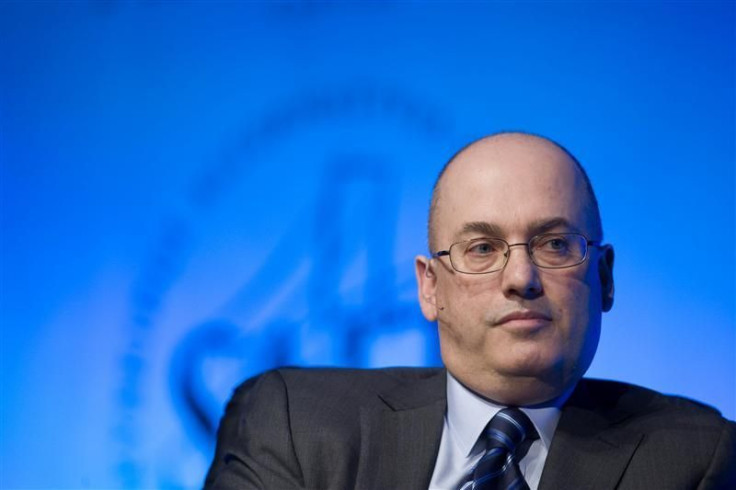SAC Capital’s Massive Insider Trading Penalty Linked To Wyeth, Elan Trades Not An Admission Of Guilt, Much To Nobody’s Surprise

By neither admitting nor denying any wrongdoing, the company agreed to pay the fine.
To anyone who follows market fraud cases, this sentence sound very familiar. It’s boilerplate to so many cases brought to the U.S. Securities and Exchange Commission. The recent settlement between SAC Capital Advisors and the federal watchdog agency is no exception.
The $15 billion hedge fund based in Stamford, Conn., agreed last week to pay $616 million for two government lawsuits linked to an insider trading scheme involving clinical trials for an Alzheimer’s drug being developed by Elan Corporation, PLC (NYSE:ELN) and Wyeth, now a unit of Pfizer Inc. (NYSE:PFE). The penalty includes $14 million to resolve charges that an SAC trader illegally traded shares in tech firms Dell Inc. (Nasdaq:DELL) and NVIDIA Corporation (Nasdaq:NVDA).
The amount paid includes $275 million the fund made in July 2008 selling shares in the two pharmaceutical companies and then shorting the stock. The fund allegedly acquired information unavailable to the public about problems with the drug trials, which drove down the price of the stocks in the two companies.
The SEC calls it the largest-ever settlement for insider trading, but it also includes the following statement: “The settling parties neither admit nor deny the charges.”
This is more than just a press release platitude. Firms are careful not to admit guilt even if they agree to pay a pile of cash they wouldn’t otherwise pay if they thought they could win a civil lawsuit. In clarifying that such settlements are not admissions of guilt, firms avoid exposing themselves to future civil or criminal prosecutions or securities class action lawsuits that would use such admissions against them later. But critics have said that the SEC’s policy of accepting ambiguous admissions of wrongdoing is too soft.
The SEC says the investigations into SAC alleged malfeasance is ongoing, and the fund’s former portfolio manager, Mathew Matoma, still faces criminal charges. So far four of the nine former or current employees of the fund have pleaded guilty to insider trading.
SAC’s billionaire chairman, Steven Cohen, who maintains he did nothing wrong, and others, could still face criminal charges, but the settlement removed from the table SAC’s exposure to lawsuits by two former employees, according to Dealbook, which quoted hedge fund lawyer Steven Nadel as saying investors view the settlement as “a major step in the right direction.”
The issue of firms ponying-up cash for punitive payments without admitting to wrongdoing came to light most glaringly back in 2011, when Wachovia Bank, now part of Wells Fargo & Co (NYSE:WFC), admitted to the Justice Department manipulating the way derivatives from tax-exempt bonds were being peddled to institutional investors that included cities and pension funds.
But in settling the SEC’s securities-related lawsuit against the bank it declined to admit any wrongdoing. This contradiction led to a renewed debate about the so-called “neither admit nor deny” practice the SEC routinely uses when dealing with Wall Street.
“It just doesn’t compute,” Cornelius Hurley, the director of the Boston University Center for Finance, Law & Policy, told the New York Times at the time. “I think an explanation is deserved from the SEC as to why there is this apparent discrepancy.”
The Wachovia case was such an overt example of a major discrepancy that the SEC announced in January 2012 that it would no longer accept settlement agreements where defendants have been found guilty or admitted guilt in criminal proceedings and then decline to admit the same liability when settling the civil charges from the securities watchdog.
But some have said this doesn’t go far enough since most settlements never make it to the level of criminal charges, such as the case – so far – with SAC Capital. After the SEC announced its rule change last year, the head of the investors advocacy group Better Markets, Dennis Kelleher, called the move “less than meaningless.” He told the Washington Post at the time that the only thing the reform to the rules does is "eliminates the SEC looking foolish in such settlements.”
© Copyright IBTimes 2024. All rights reserved.












